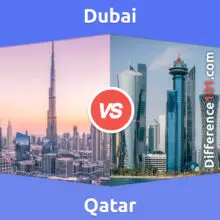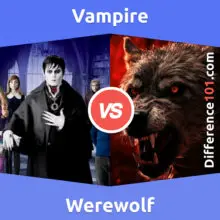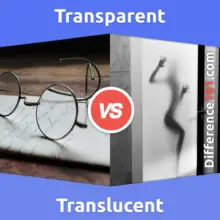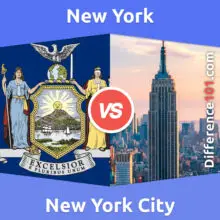When it comes to categorizing the different times of day, the concepts of evening and afternoon commonly come into play – but what exactly distinguishes them from one another? Whether you’re a language learner, an avid timekeeper, or simply curious about the nuances of the English language, understanding the difference between evening and afternoon can be a helpful and interesting exploration. In short, the period between noon and evening is known as afternoon, while evening falls between the afternoon and night. However, while this may seem like a clear-cut division, the exact timing of these transitions can vary based on cultural norms, regional differences, and personal preferences. Additionally, the words afternoon and evening can have different connotations and implications depending on the context in which they are used. In this blog post, we’ll delve deeper into the intricacies of the afternoon vs. evening divide, considering factors such as time zones, social customs, and linguistic meanings.
Table of Contents
What Is Evening?

Evening is the transitional period between afternoon and night, typically characterized by the gradual fading of daylight and the onset of darkness. The length and timing of evening vary depending on geographic location, season, and prevailing weather conditions. Generally, evening is a time when people wind down from the day’s activities, spend quality time with family and friends, and engage in leisure and recreational activities. Social events such as happy hours, dinners, and evening entertainment are often organized during this time. Overall, evening represents a time of transition from the hustle and bustle of daytime activities to the quiet and restful moments of night.
What Is Afternoon?

Afternoon is the portion of the day that lies between noon and evening. Typically, it spans from around 12:00 PM to 6:00 PM, although the exact timing may vary depending on the individual’s schedule and the cultural norms of their region. During this period, the sun is still prominent in the sky, but it may begin to dip towards the horizon as evening approaches. Afternoon is often considered a time of transition, as it marks the midpoint between the busy morning and the more laid-back evening. Many people use this time to recharge and regroup, preparing for the rest of the day ahead.
Key Differences Between Evening And Afternoon
Evening and afternoon are two distinct periods of time in a day, each with its own unique characteristics. The key difference between these two periods lies in the precise time frame they occupy. Afternoon is the period between noon and evening, typically lasting from about 12 p.m. to 6 p.m. During this time, the sun is still high in the sky, and people are often busy with work and other activities. In contrast, evening is the period between afternoon and night, usually spanning from about 6 p.m. to 10 p.m. or later. Evening is characterized by a gradual decrease in light as the sun sets and people typically wind down their activities, preparing for relaxation, family time, and rest. Overall, the differences between the two periods are significant and important to consider when planning daily activities and schedules.
- Afternoon typically refers to the period between midday and evening. It starts after noon and extends until early evening.
- Evening begins when the sun starts to set and lasts until night.
- Afternoon is characterized by brighter and more intense natural daylight, as the sun is still high in the sky.
- Evening is associated with diminishing daylight as the sun starts to set, leading to a gradual transition into twilight and eventually darkness.
Evening vs. Afternoon Similarities
Evening and afternoon are two distinct periods of the day that share a number of similarities. Both are transitional periods that mark the progression from one part of the day to the next, with evening representing the transition from the busy workday to the rest and relaxation of the night, and afternoon marking the transition from the busy morning hours to the less hectic part of the day. During both periods, the light transforms from bright and blinding to soft and subdued, and the temperature gradually starts to cool. Additionally, people tend to wind down during both evening and afternoon, whether that means spending time with loved ones, engaging in leisure activities, or preparing for bedtime.
- During both afternoon and evening, there is still natural daylight, although the intensity of light changes as the day progresses.
- Afternoons and evenings are often associated with regular daily activities.
- During both afternoon and evening, the sun gradually moves toward the western horizon, indicating the approach of nighttime.
- Both evening and afternoon are specific periods within a 24-hour day.
Evening vs. Afternoon Pros and Cons
Evening Pros & Cons

Evening Pros
The evening, which usually encompasses the time between the afternoon and night, offers numerous benefits and advantages. Firstly, it is a great time for relaxation after a busy day of work or school. It provides a serene environment for reading, watching TV, or spending time with family and friends. The evening is also the ideal period for exercise, as the cooler temperatures are conducive to outdoor activities. Additionally, it offers a perfect opportunity for introspection and meditation, allowing individuals to reflect on their daily activities and plan for the next day. Furthermore, businesses operating during the evening can take advantage of the heightened demand for services during this period, resulting in increased revenue and profitability. Overall, the evening provides a perfect balance of leisure and work, making it an important aspect of our daily lives.
- It offers a perfect opportunity for introspection and meditation, allowing individuals to reflect on their daily activities and plan for the next day.
- It is a great time for relaxation after a busy day of work or school.
- It provides a serene environment for reading, watching TV, or spending time with family and friends.
- The evening is also the ideal period for exercise, as the cooler temperatures are conducive to outdoor activities.
Evening Cons
The Evening, which is the period between afternoon and night, has its own set of disadvantages and cons. Firstly, it can make people feel tired and drained after a long day’s work. Additionally, it can be challenging to navigate through traffic during rush hour, especially in urban areas. Moreover, the limited daylight hours can make it tough to engage in outdoor activities or exercise. Social events in the Evening can also be exhausting after a busy day and may disrupt sleep patterns. Lastly, working late hours can lead to burnout and decreased productivity. Overall, the Evening may pose challenges to one’s physical and mental health, making it essential to prioritize self-care and relaxation during this time.
- It can make people feel tired and drained after a long day’s work.
- It can be challenging to navigate through traffic during rush hour, especially in urban areas.
- The limited daylight hours can make it tough to engage in outdoor activities or exercise.
- Working late hours can lead to burnout and decreased productivity.
Afternoon Pros & Cons

Afternoon Pros
The afternoon, or the period between noon and evening, is a crucial time of day with several advantages and benefits. Firstly, it provides an opportunity for rest and rejuvenation after a busy morning. Taking a short nap or engaging in a leisurely activity can help boost productivity for the rest of the day. Additionally, the afternoon provides ample sunlight and outdoor activities, contributing to good health and wellbeing. Meals during this time can be enjoyed without haste, allowing for better digestion and a sense of relaxation. Lastly, the afternoon can be used for creative pursuits or business meetings, with fewer interruptions and a quieter atmosphere, leading to better focus and performance. Overall, the afternoon provides multiple advantages that add value to one’s daily routine.
- The afternoon provides ample sunlight and outdoor activities, contributing to good health and wellbeing.
- Meals during this time can be enjoyed without haste, allowing for better digestion and a sense of relaxation.
- Afternoons are good for creative inspiration.
- Afternoon is the time when you get the chance to relax.
Afternoon Cons
The afternoon, which refers to the period between noon and evening, can pose several disadvantages and cons. One of the primary cons is the feeling of fatigue and decreased productivity that often occurs during this time. Many people experience a slump in their energy levels, making it more challenging to focus and complete tasks efficiently. Additionally, the afternoon is typically a busy time for traffic, making commuting more time-consuming and stressful. For those with irregular eating habits or a tendency to skip meals, the afternoon may also bring about hunger pangs and decreased concentration. Finally, afternoon meetings may be less productive as participants may be tired or distracted.
- One of the primary cons is the feeling of fatigue and decreased productivity that often occurs during this time.
- Many people experience a slump in their energy levels, making it more challenging to focus and complete tasks efficiently.
- The afternoon is typically a busy time for traffic, making commuting more time-consuming and stressful.
Comparison Table: 6 Key Differences Between Evening And Afternoon
| Components | Evening | Afternoon |
|---|---|---|
| Timing | Evening begins when the sun starts to set and lasts until night. | Afternoon typically refers to the period between midday and evening. |
| Lighting conditions | Evening is associated with diminishing daylight as the sun starts to set, leading to a gradual transition into twilight and eventually darkness. | Afternoon is characterized by brighter and more intense natural daylight, as the sun is still high in the sky. |
| Activities | Evening is more commonly associated with leisure activities, socializing, dining out, or engaging in personal hobbies and interests. | Afternoon is typically associated with work, school, and other daytime commitments. |
| Social engagements | Evening is often a preferred time for meeting friends, attending parties, going out for dinner, or participating in cultural and entertainment events. | Afternoon is not commonly associated with social gatherings or events, except for specific occasions or weekends. |
| Energy levels | Evening tends to be a time for winding down and relaxation, as people prepare for rest and sleep. | Afternoon is often considered a time of higher energy and productivity. |
| Mood and ambiance | Evening has a calmer and more relaxed mood, with a focus on unwinding, spending time with loved ones, or enjoying personal leisure activities. | Afternoon is often associated with a more lively and active atmosphere, as people are immersed in their daily routines and activities. |
Comparison Chart

Comparison Video
Conclusion: What Is The Difference Between Evening And Afternoon?
To sum up, the main difference between afternoon and evening lies in the time frame. Afternoon is the period between noon and evening, while evening is the period between afternoon and night. These distinctions may seem trivial, but they can be useful when scheduling appointments or events, as well as providing more clarity in communication. Whether you prefer the afternoon or the evening, it’s important to recognize the differences between them and make the most of each part of your day.








